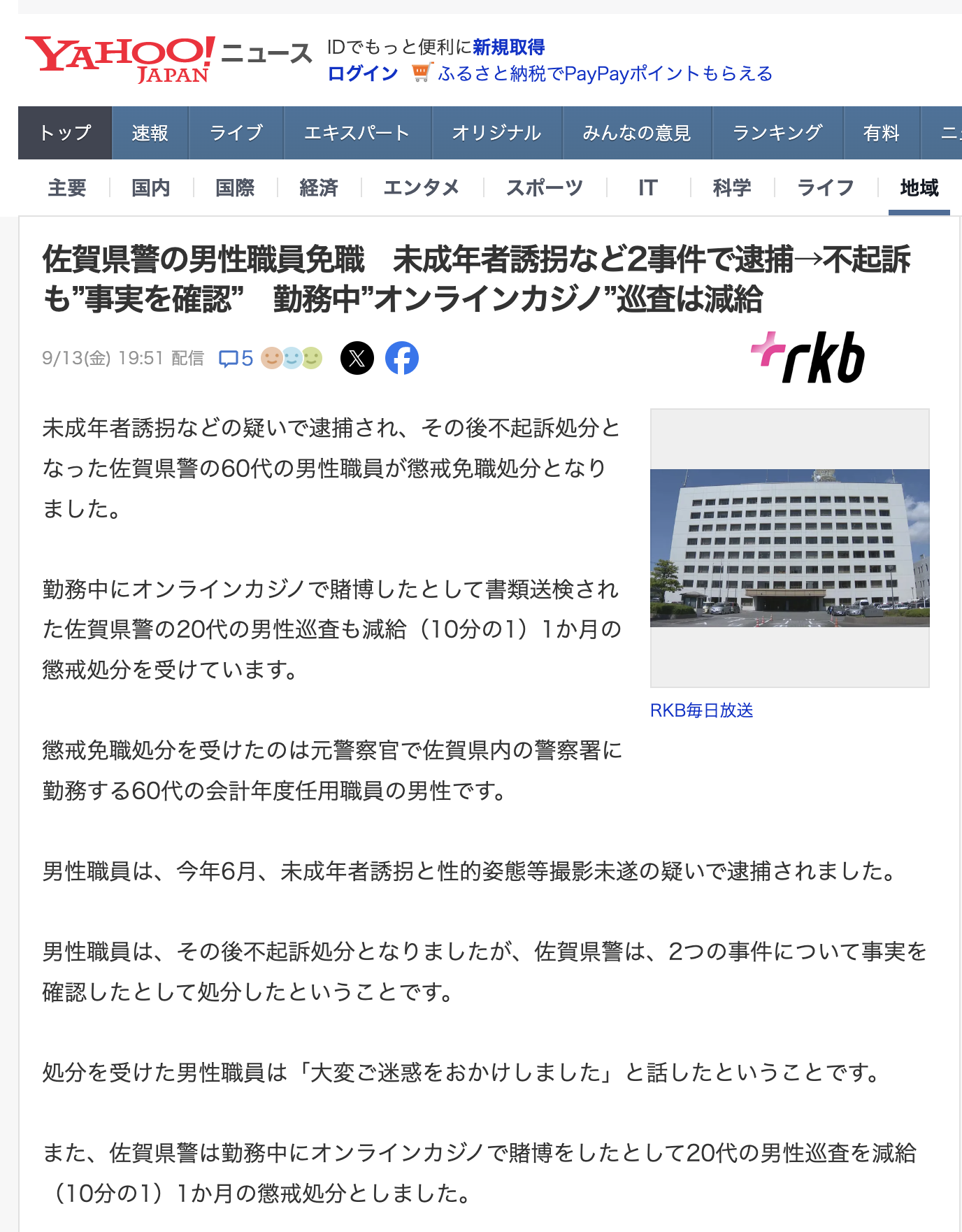My mother regularly sends me news articles, most of which are about casinos. I can’t help but feel there’s a bit of malice behind it, as if she’s trying to hint at something aimed at me. I usually ignore it, sensing that it might be her subtle “nudge” towards me, a son who hasn’t been in much contact despite being released.
I usually brush off the nudges (the article titles), but one caught my eye.
Saga Police Cover-Up

Here’s a summary from Notion AI:
• A 60-year-old male employee of the Saga Prefectural Police was arrested on suspicion of kidnapping a minor and later dismissed after a non-prosecution decision.
• A 20-year-old male police officer was caught gambling on an online casino while on duty and sent to prosecutors.
• Despite the 60-year-old being non-prosecuted, he was dismissed, whereas the 20-year-old officer only received a pay cut.
• There appears to be an imbalance in punishments, suggesting internal discrepancies in how cases are handled.
• This situation raises questions about the consistency of discipline and rules within the police force.
Wow, Notion’s pretty good. But more importantly, according to this article, there were two scandals: the heinous crime of kidnapping a minor and the gambling offenses on an online casino. The 20-year-old officer could potentially be charged with “simple gambling” or “habitual gambling,” yet it seems the internal police forces found the suspect and avoided prosecution.
This highlights the so-called justice of the police. When internal scandals come to light, the force fears damaging its own image and tries to make them disappear.
For outsiders like me, they’re more than willing to disregard human rights and make me a public spectacle through the media. But their adherence to principles and sense of compliance? There’s no rhyme or reason to it.
The decisions to arrest, prosecute (pushing for indictment by the prosecutor), or expose someone to the media are all at the whims of those in power at the time.
We, as citizens, must keep a watchful eye to ensure this “power” does not become something that transcends the state system itself. However, given their skill at manipulating public perception through the media, the typically obedient Japanese public is at risk of being misled.
A Little Glossary
When you hear these terms in Japanese media, this is generally what they mean:
• Shorui Sōken (Document Referral) – When it’s more convenient for the police to claim insufficient evidence and drop the case.
• Rikken (Formal Investigation) – The point at which the police finish their work because the prosecution doesn’t take the case. Media will often phrase it as “A was formally investigated for X,” making it sound like A was the criminal, though there may have been wrongful arrests or mistakes.
• Yōgi o Mitometeiru/Hinin (Admitting/Denying Charges) – An act of using parts of an interrogation confession to sway public opinion.
• Pay Cut – A cover-up for incidents involving internal personnel.
• Arrest – Creating a situation where the suspect is pressured into admitting favorable facts, while reinforcing the impression that they are a criminal.



Comments